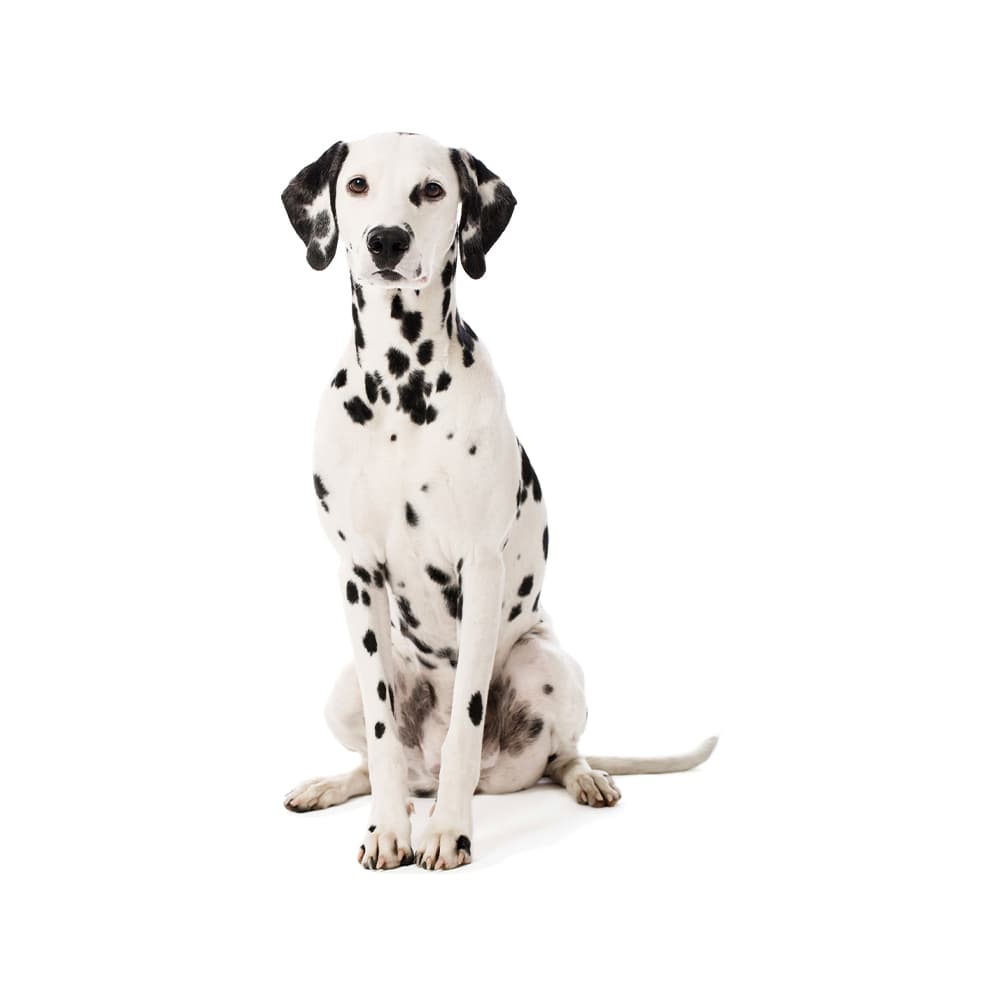Discover your dog's connection to this breed and 200+ others


Discover your dog's connection to this breed and 200+ others



The Dalmatian has a rich history that dates back several centuries. Despite the breed name suggesting Dalmatia, a region in modern-day Croatia, the exact origin of the breed is not clear, with evidence suggesting they may have existed in ancient Egypt, Greece, and Rome. Dalmatians are famously known for their unique spots, which have made them highly recognizable and sought after as pets. In England during the 18th and 19th centuries, Dalmatians were popular as carriage dogs, their distinctive look adding a touch of elegance, and they were also used as guard dogs to protect the carriage and horses when left unattended. They were also adopted as firehouse mascots in the USA, due to their history with horses, guarding equipment, and their ability to clear the way for horse-drawn fire engines.
Dalmatians can suffer from deafness, kidney stones, hypothyroidism, seizures, iris sphincter dysplasia, and allergies. Some may also be prone to canine hip dysplasia or urinary calculi. Genetic testing for conditions such as degenerative myelopathy and hyperuricosuria can assist veterinarians with diagnosis and proactive care, as well as help breeders identify affected and carrier dogs.
Dalmatians are known for their high energy levels, endurance, and playful nature. They are intelligent dogs with a strong drive to work and please their owners. However, they can be stubborn at times and require consistent, positive reinforcement training methods.
Socialization from a young age is essential for Dalmatians to prevent them from becoming shy or aggressive. They are usually friendly dogs but can be reserved with strangers. They are great with children and can get along well with other pets if properly introduced and socialized. Their high energy levels make them a poor choice for sedentary owners, as they need a lot of physical exercise and mental stimulation to prevent boredom and related behavior problems.
A canine genetic lineage is a group of individuals or entire breeds that descended from common ancestors predating modern breed formation. Often these lineages are associated with a ‘type’ of dog with a unique historical working role and associated behaviors (e.g., herding, scent hunting, etc.).
The Pointer-Spaniel lineage encompasses both pointer and spaniel breeds. They were both bred for their specialized hunting abilities in Europe. Pointers locate game and freeze in a stance, called “pointing”, to indicate to their hunter that birds are close by. Spaniels were bred to find game in underbrush and retrieve it. Both pointer and spaniel breeds were bred to enhance their strong senses, trainability, and endurance as these are advantageous in a hunting partner. Spaniels and pointers are known for their strong work ethic, ability to work closely with humans and agility. These dogs’ ability to work closely with their hunters makes them an asset during a hunt because they follow direction well and know how their hunters want them to proceed.
Example breeds with ancestry from this lineage include English Cocker Spaniel, Irish Red Setter, and German Shorthaired Pointer.
Dalmatian puppies are born without spots.
Their nicknames "Coach" and "Carriage" Dog reflect the history of using them to guard carriages and horses, both while in motion with cargo and when unoccupied.
Their nickname "Plum Pudding Dog" connects to their resemblance to Britain's traditional holiday dessert that has flecks of candied fruit and nuts.
Dalmatians traveled extensively throughout Europe with caravans of the Romani people, which may explain why the breed's origins are difficult to pin down.
https://www.akc.org/dog-breeds/dalmatian/ https://www.ukcdogs.com/dalmatian
https://www.petmd.com/dog/breeds/c_dg_dalmatian
https://www.pawprintgenetics.com/products/breeds/177/
https://www.fci.be/Nomenclature/Standards/153g06-en.pdf
Recommended by top vets with decades of experience
21 breeds
64 genetic health markers
50 genetic trait markers
